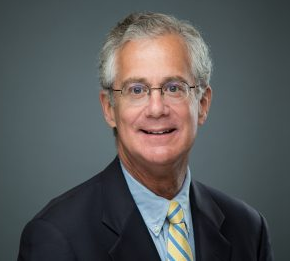
Multiple studies show that we are more likely to talk about the loss of a loved one or our own mortality than about our personal finances. However, avoiding the topic prevents us from taking control of our finances. To highlight National Financial Capability Month, we created a blog series that feature personal stories and experiences that we hope will help eliminate the stigma of talking about our personal finances.
By Michael Morris, J.D., Executive Director, National Disability Institute
What was your worst financial decision/choice and what was the lesson learned?
A year ago, I advised my older daughter that it wasn’t worth her time to track down funds she thought were in a savings account with a bank when she lived in Washington, D.C. A year later, after much persistence and being transferred from many different parts of this D.C.-based bank, she was able to find a bank staff member who told her that her account had been closed because they had seen no activity in more than two years and that the funds had been turned over to the State of Maryland, which was the last previous known address on file. After being placed on hold and disconnected multiple times, she finally got past a voice recording system and talked directly to an individual who works with the State of Maryland. She was able to locate her funds that had been moved from her savings account by the local bank to an account held by the state when the account owner’s address is unknown. Despite my bad financial advice to my daughter that there couldn’t have been much funds in the account and it wasn’t worth her time to keep pursuing the lost funds, she learned that the account had $12,000 in it and that the State of Maryland would be issuing a check to her, based on her proof that she was the original account owner. The lesson learned is: parents don’t always know best and persistence and perseverance can win out when seeking to recover lost funds.
What would you tell your younger self about managing money?
I would tell my younger self, “If I only knew what I know today about managing money, I would be wiser and more self-sufficient.” For a major part of my adult life, I worked for one national nonprofit organization that did not offer any retirement accounts for employees to contribute to or for the employer to match contributions. The most important advice that I have shared with my daughters and the cardinal rule of building a retirement savings is to start early in your professional life and make regular contributions to tax-advantaged retirement and/or investment accounts.
What is the best money tip or advice that you have received?
The best advice that I have received often in the last 20 years from financial service companies and advisors is the importance of diversification of assets. Saving and investing require discipline and looking long-term to build assets for the future. Diversification includes home-ownership, stocks, mutual funds and bonds that work together to grow and buffer losses in one choice of holdings over another.
Who set you on your path to learn positive money habits?
This takes me way back to when I was a child of about eight or nine years old. My older brother and I would go with my parents every Sunday to visit my grandparents in Brooklyn, back in the day when Brooklyn wasn’t the choice of place to live for younger people. My grandmother introduced my brother and I to a coin album. Each page had circular cutouts to place a silver dollar. Each time we would visit, she would place a new silver dollar she had gotten from the bank that week that we could put in our coin album. My grandmother taught us that although all silver dollars were worth a dollar, some had more value than others, because of the year they were minted. We learned that some silver dollars were so rare, they could be worth more than a hundred dollars. My grandmother taught us with those coin albums the importance of saving and the value of a coin collection. To my brother and I, it was an exciting game each weekend to get our freshly-minted silver dollar and on some weekends be handed an older coin with much greater value. It was a positive path to learn at a young age the value of money, as we would turn each page in the coin album to compare with each other the dates on the coins and wonder what they would be worth some day.
Michael Morris is the Founder and Executive Director of National Disability Institute. He is a recognized leader on disability public policy regarding workforce and community development, tax and social and economic security. As the first Kennedy Foundation Public Policy Fellow, former legal counsel to the U.S. Senate Subcommittee on Disability Policy and Executive Director of United Cerebral Palsy Associations, Mr. Morris is adept at complex program design and model development with engagement of public and private sector agencies/organizations to transform thinking and behavior concerning financial empowerment for economically vulnerable populations. He received his undergraduate degree in political science with honors from Case Western Reserve University and his law degree from Emory University School of Law.
Sign-up for the Real Economic Network Today at: https://www.nationaldisabilityinstitute.org/capacity-building/partnerships/
